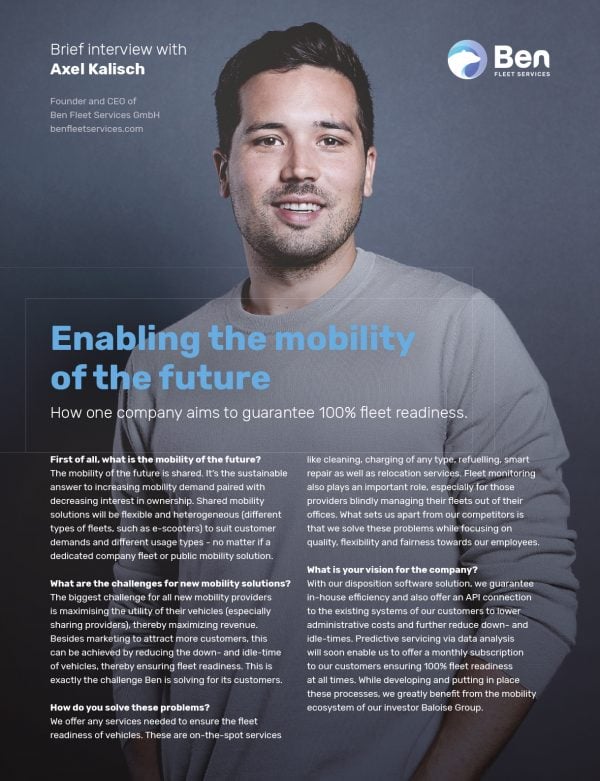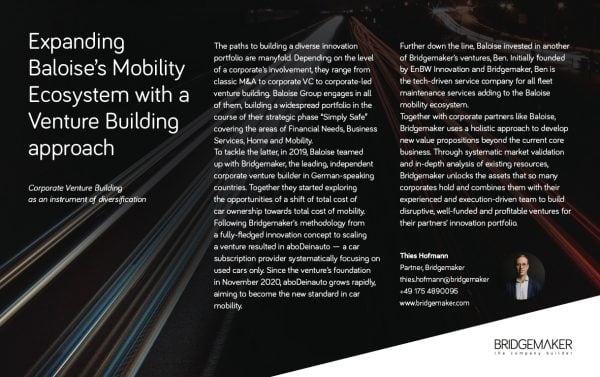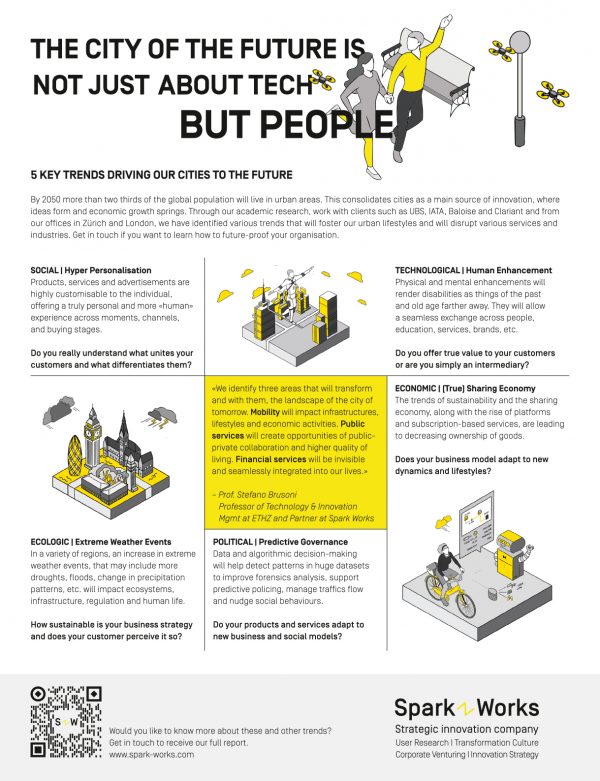How to bring insurance into the 21st century may be a topic many in the industry are talking about but “there aren’t many who have the culture to pull it off”, says Baloise Group’s CTO Alexander Bockelmann. With more than a century and a half of history and a strong tradition of core insurance excellence behind it, he believes that the Swiss-headquartered insurance group is one of the few that can walk the talk.
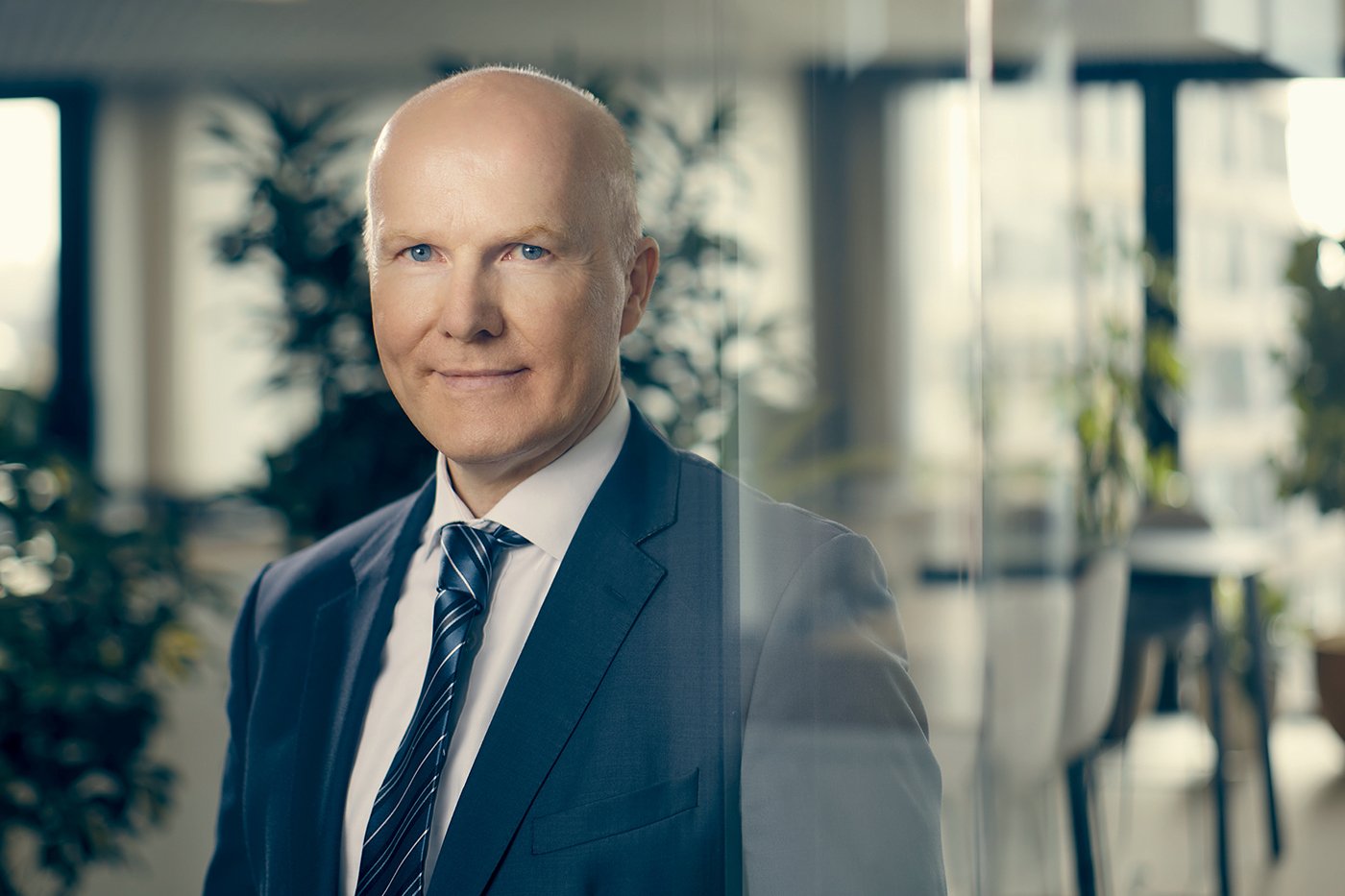
“There’s a real entrepreneurial energy about trying new things,” he explains. “Rather than as an externally driven concept led by consultants, we are positioned to approach change using internal expertise and co-creation with partners in an open innovation approach.”
For Alexander, who has a PhD in geosciences and has worked in executive technology roles on both sides of the pond for insurance firms such as UNIQA in Austria and Allianz of America in the US, it was the opportunity to play a part in this futureproofing that attracted him to the CTO role in early 2019, heading up the newly created Group IT Corporate Division.
“Baloise has one of the most profitable non-life portfolios in Europe as well as strong underwriting excellence but also appreciates that the world is changing,” he says. “The more I learned about its culture and vision, the more I wanted to participate in this journey.”
In Baloise, Alexander has joined a firm steeped in heritage, having first opened its doors in 1863 as the Basler Versicherungs-Gesellschaft gegen Feuerschaden (Baloise Insurance Company for Fire Damage). In 1912, the company, whose name means ‘the insurance from Basel’ (where its headquarters are located), paid out CHF 4 million (€3.60 million) when the Titanic sunk. By the 1930s, it had extended its reach to over 50 countries in the world.
Today, across its three key business segments of insurance, asset management and banking, the Group has focused its operations in Switzerland, Germany, Belgium, Luxembourg and Liechtenstein. As it has grown, the Baloise promise has remained reassuringly consistent for generations of clients: ‘Simply Safe’.
If we combine our single standalone activities, we create better customer value than each component would individually.
The motto was adopted as the title of its five-year strategy from 2017 to 2021, where innovation, digitalisation, customer focus and cultural change were brought to the fore, as well as a period of broader experimentation with new fields of innovation within and outside of its key business areas.
The name has returned for its follow up, ‘Simply Safe: Season 2’, which runs from 2022 to 2025. In this new incarnation, innovation will play an even greater role.
“Season two has four key pillars: focus on the core, reimagine the core, diversify the core and transform,” Alexander explains, adding that corporate culture and agility will be key drivers of the final pillar, transform. “For us, agility isn’t a methodology,” he says.
“Instead, it’s a different way of thinking and behaving in order to achieve an outcome, which is not only customer focus and enjoyable customer experiences but also harnessing this spirit of entrepreneurship and calculated risk-taking to further develop the business.”
The company is on what he refers to as an “agile journey” where a principle-based approach is being followed to introduce transparency and decentralised responsibility, short value-creation cycles and a culture of ongoing learning.
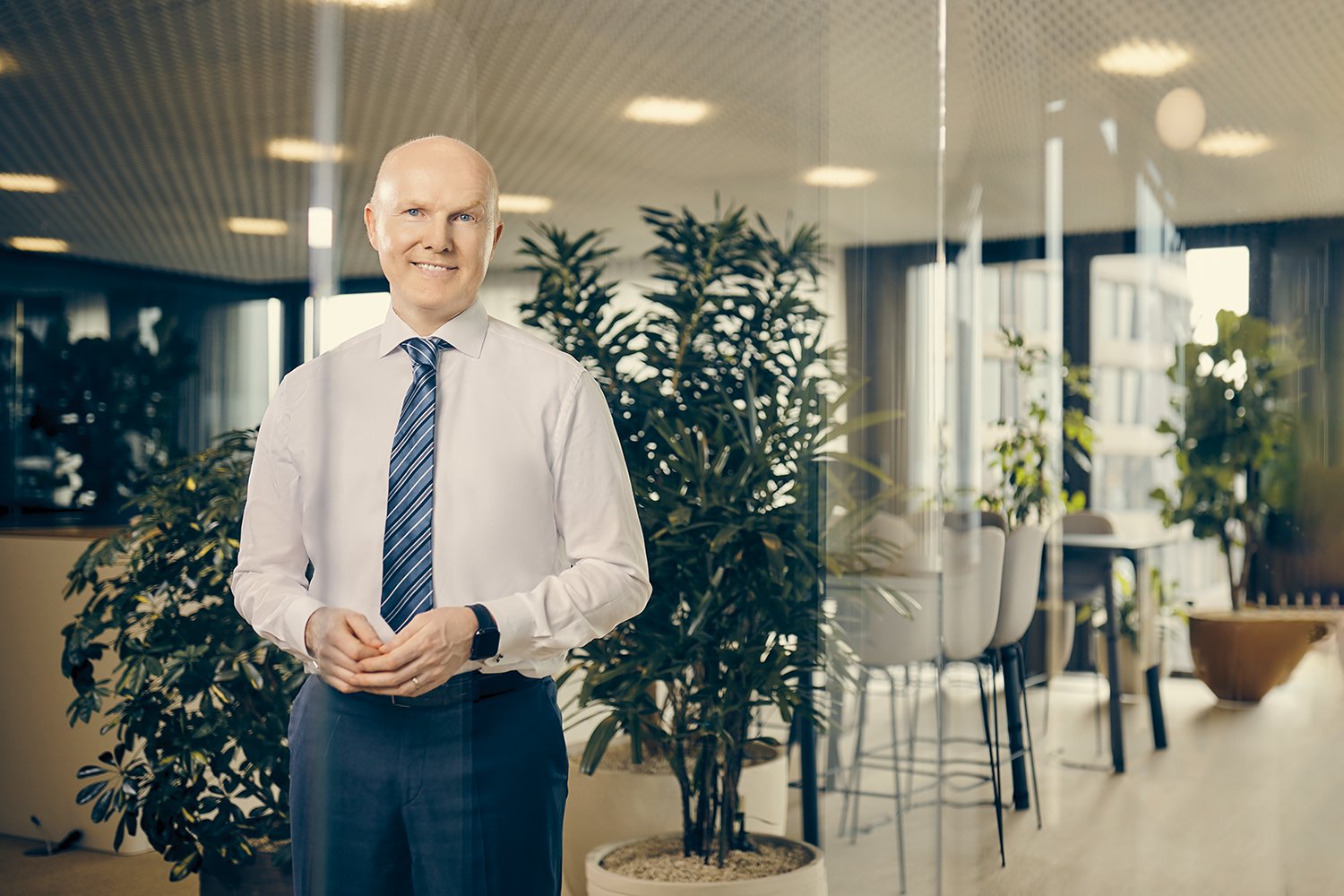
“We’re opening the creation of our strategy and targets from the executive level to the expert level, inviting employees to participate and contribute from all the countries we are in,” Alexander explains.
Such a shift wouldn’t be possible without “the right mindset and corporate culture”. One of the first branches within the business for this strategy to be put into practice was the one he leads.
“In the new Group IT division, we moved from a traditional hierarchical model to a networked organisation that works as a web of smaller service teams with dedicated capacity and budget,” Alexander says.
“These teams make decisions within the strategic framework that we provide.” Digitalisation and IT-driven innovation play a significant role in the second part of the strategy; reimagine the core.
“To make the customer experience more seamless and react to today’s trends, we need to rethink how the business can be done and leverage new technologies,” he says. The ubiquity of messaging services has led the company to explore how such tools can be integrated into the Baloise experience, with its EasyAsk solution the result.
To make the customer experience more seamless and react to today’s trends, we need to rethink how the business can be done and leverage new technologies.
“This personalised, message-based claims handling service has allowed us to reduce the cycle time of claims settlements from days and weeks to, in some cases, minutes and hours with very high customer satisfaction scores,” Alexander says.
The first pillar of the strategy, focus the core, takes the simplification of the Simply Safe strategy to heart. “It is all about simplifying our product and service portfolios.”
“We are making good progress in streamlining our offerings and concentrating on our products that add the most value,” he smiles. “To diversify the core business, the third pillar, the idea is to transform Baloise from solely being a traditional risk product provider, to being a solution provider in the ecosystems of home and mobility, as well.”
As each of the strategy touchpoints are addressed, partnerships have come to the fore. “We have a strong sense of open innovation, where our strategy is to partner, “Season two has four key pillars: focus on the core, reimagine the core, diversify the core and transform,” Alexander explains, adding that corporate culture and agility will be key drivers of the final pillar, transform.
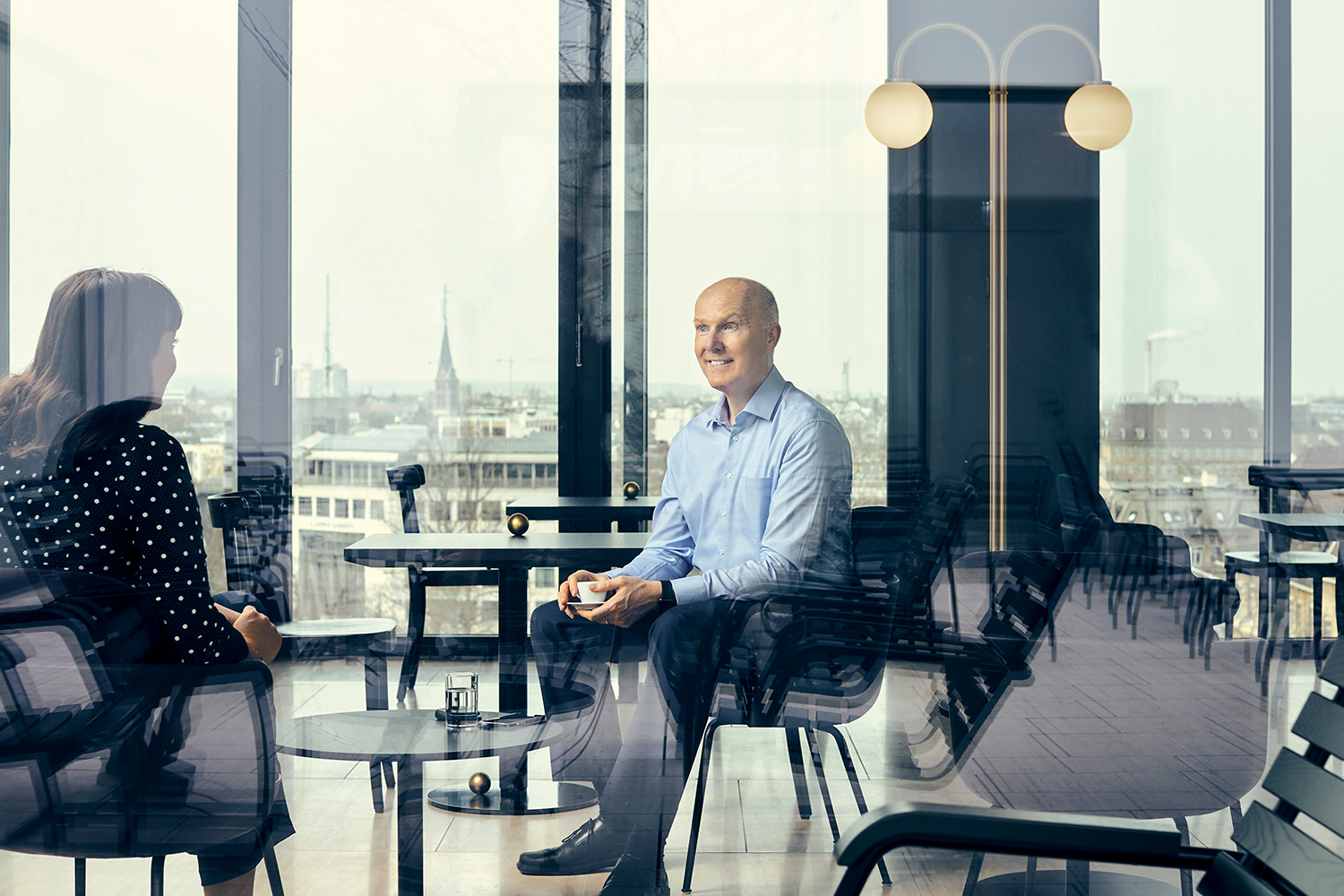
“For us, agility isn’t a methodology,” he says. “Instead, it’s a different way of thinking and behaving in order to achieve an outcome, which is not only customer focus and enjoyable customer experiences but also harnessing this spirit of entrepreneurship and calculated risk-taking to further develop the business.”
The company is on what he refers to as an “agile journey” where a principle-based approach is being followed to introduce transparency and decentralised responsibility, short value-creation cycles and a culture of ongoing learning.
“We’re opening the creation of our strategy and targets from the executive level to the expert level, inviting employees to participate and contribute from all the countries we are in,” Alexander explains. Such a shift wouldn’t be possible without “the right mindset and corporate culture”.
One of the first branches within the business for this strategy to be put into practice was the one he leads. “In the new Group IT division, we moved from a traditional hierarchical model to a networked organisation that works as a web of smaller service teams with dedicated capacity to incubate, to invest and to acquire, and we play all four cards in that,” Alexander says.
“If you want to create sustainable value solutions in an ever-changing world, you need to leverage the capability and capacity of partners to come up with holistic solutions. That’s even more important when you switch from being a pure product provider to a service partner, because in many cases, it’s not the best offer for the customer if you try to do everything by yourself.
“For the home ecosystem in Switzerland, for example, we’ve built a community of services with the help of acquisitions and minority investments in startups such as MOVU, the market-leading digital relocation platform, devis.ch, an online marketplace for handyman and cleaning services, as well as Batmaid, a full-service cleaning aid agency. We’re building an ecosystem of services in order to become the solution provider in that field.”
Mobility, in particular, is the trend that Alexander is particularly excited about. “There is a lot emerging and evolving in the area of mobility, particularly considering that, currently, motor insurance is such an important income stream for many non-life insurers,” he says.
“We want to be part of shaping the field of personal mobility services, leveraging our strong innovation culture and partnerships.
“Together with Spark Works, a leading strategic design and innovation company and spin-off of the Swiss Federal Institute of Technology (ETHZ), we have developed a vision of the future of mobility in the year 2040 and are collaborating on understanding current and emerging mobility trends to develop new business and service ideas for this ecosystem.”
Alexander explains that internal entrepreneurship is strongly encouraged to develop new ideas. “Two internal mobility startups are currently incubating right now,” he says.
“We have also built startups. One is aboDeinauto, a subscription-based car rental service that works with used car dealers to leverage their assets. It’s a new idea that also aims at improving the sustainability of transportation by better leveraging existing assets.”
The car rental service Alexander refers to, aboDeinauto, was founded in cooperation with Bridgemaker, Europe’s leading independent corporate company builder. “In Bridgemaker, we have found a partner company that accompanies us from idea generation and validation to the establishment of a company,” he says.
Since its founding in 2016, Bridgemaker has built numerous successful ventures. Among them is the Berlin-based startup Ben Fleet Services, which Bridgemaker initiated together with Baden Württemberg-based EnBW in 2018. Ben Fleet Services offers fleet maintenance services from charging to cleaning for mobility providers by smart integration into their existing software.
Baloise acquired a minority stake in the technology-driven service company last year as part of the build out of Baloise’s mobility service portfolio.
“Nearly all of our innovations have been realised with strong partnerships,” Alexander continues. And, in today’s world, these relationships are increasingly important. “A digital economy is a network economy,” he explains.
“In the network economy, you have more interfaces and interactions and partnerships than in a traditional marketplace economy where customers approach you, make a deal and then leave. If we combine our single standalone activities, we create better customer value than each component would individually.”
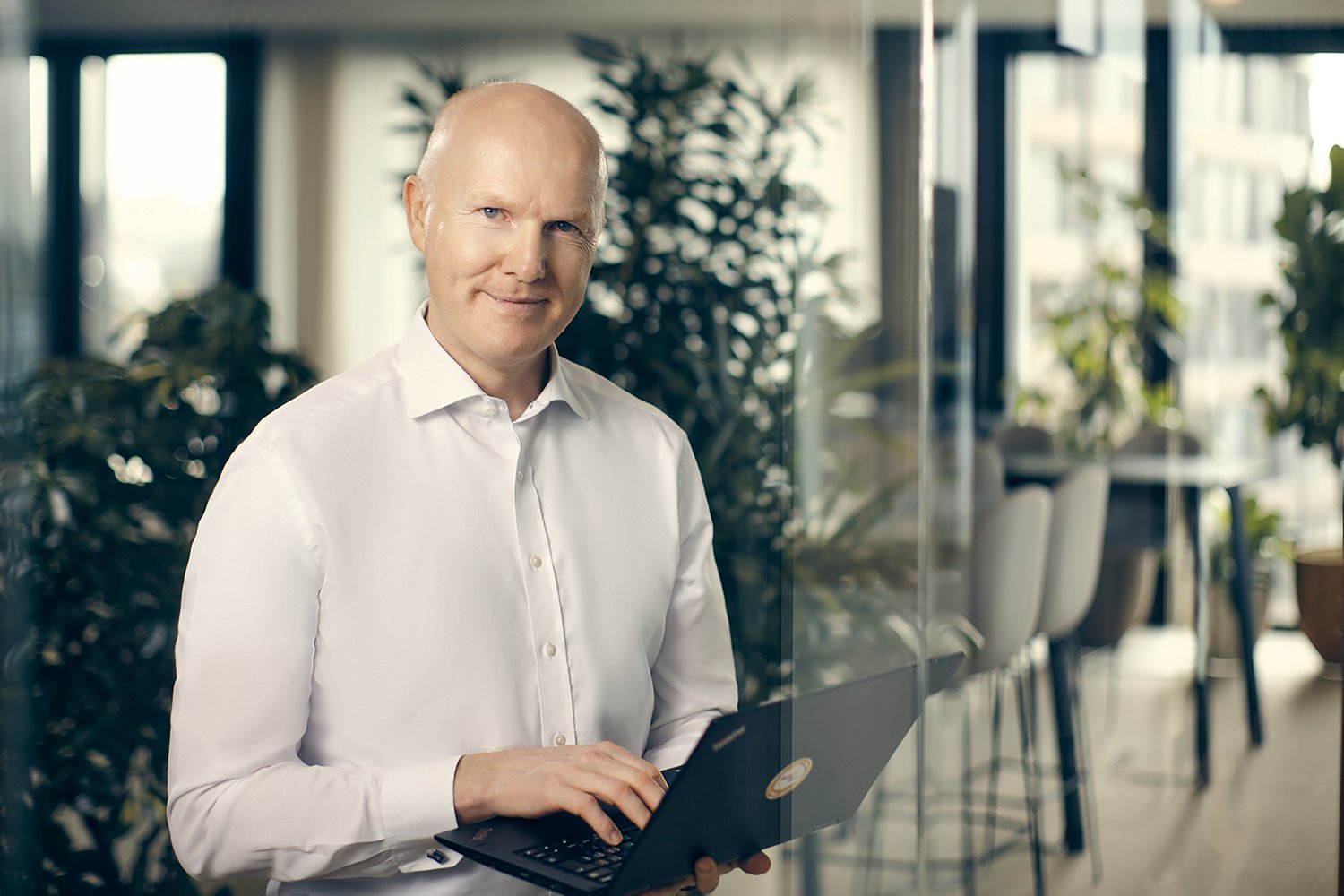
The idea of collaboration, or the “co-creation of solutions,” as he refers to it, also includes partnering with competitors, especially to bring to insurance the concept of an open-source ecosystem, like there is in the financial services industry.
“In banking, many aspects such as sending money around the world, are now shared services, but insurance is still a proprietary IT pipeline,” he says.
“This concept of shared technology-based capabilities is growing in importance.” The speed at which the business was able to adapt to COVID-19 lockdown measures shows Alexander that the business is moving in the right direction.
“As part of our next strategic phase, we are moving all of our IT to private and public cloud environments,” he explains, adding that leveraging these cloud-based solutions allowed the team to move from a majority office-based environment to nearly entirely remote working in a matter of days.
With the end of the pandemic hopefully in sight, he believes that Baloise is well placed to navigate the changes more than a year spent working in a distributed setting will inevitably bring.
“The health crisis will trigger a significant shift in how we perceive work, leadership and culture,” Alexander says. “That’s where the core of our cultural transformation and the empowerment of experts will give us an advantage.
“The current climate underlines the concepts that we were working on and requires us to bring them to the front more quickly than we would have managed in a more traditional setting. It has been a little kick of steroids into our internal transformation.”
Proudly supported by:
